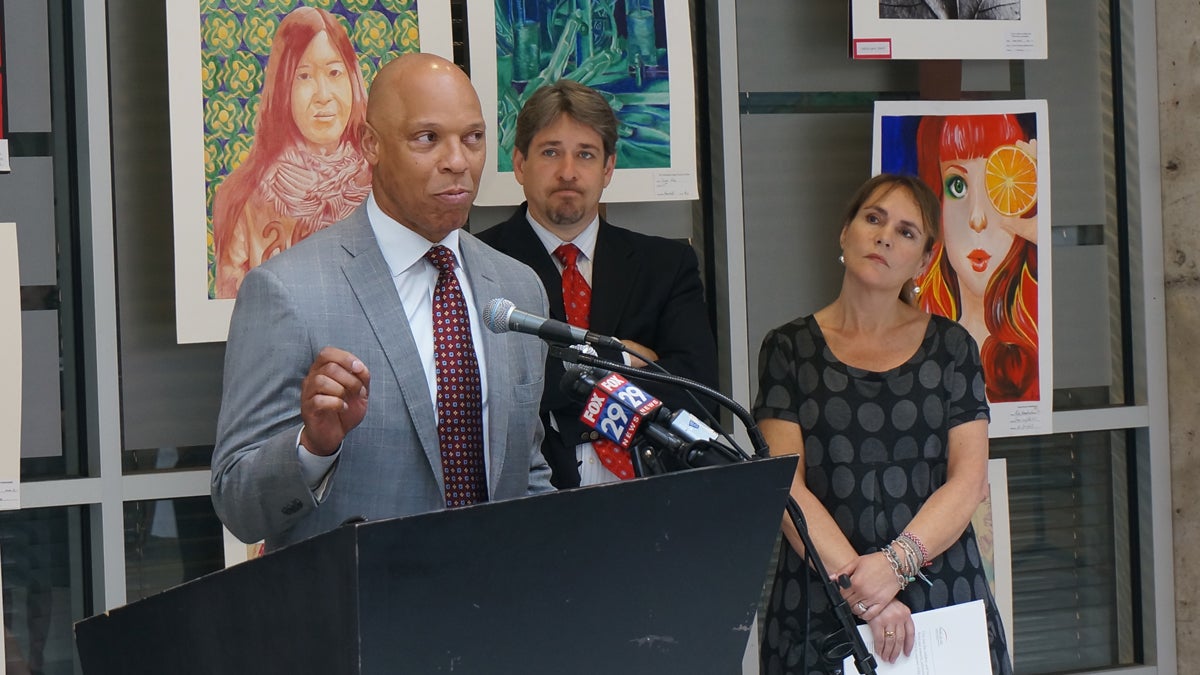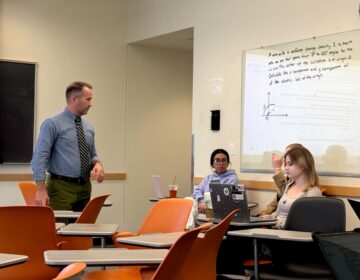17 percent of Philly public school kids involved in child welfare, juvenile justice systems

From left, Philadelphia Schools Superintendent William Hite; David Rubin, the founding co-director of PolicyLab at The Children's Hospital of Philadelphia; and city Department of Human Services Commissioner Anne Marie Ambrose gather to announce a new report on the educational outcomes of public school students involved with DHS. (Jessica McDonald/WHYY)
Kids who have gone through the foster care system or who have been been held in juvenile detention generally have a tougher time in school and don’t fare as well as their peers.
Kids who have gone through the foster care system or who have been been held in juvenile detention generally have a tougher time in school and don’t fare as well as their peers.
Researchers at the Children’s Hospital of Philadelphia’s PolicyLab, in collaboration with the school district of Philadelphia, addressed the extent of the problem facing children in Philadelphia.
For many educators and administrators, the results are sobering. According to the report issued after the CHOP investigation, 17 percent of all students in the Philadelphia public school system have been or are now involved with the Department of Human Services — as part of the child welfare or juvenile justice systems. The rate rises to 20 percent in high school.
Pediatrician and co-director of the PolicyLab at CHOP, David Rubin, said the students are scattered geographically across the city, but are more common in certain types of schools.
“These kids get concentrated in our neighborhood comprehensive schools — in a big way,” he said. “That largely explains the disparity … because whether you’re in child welfare or not, in those schools, those schools are struggling academically.”
Nearly half of the high schools in the Philadelphia School District had more than 100 students — or more than 20 percent — involved with DHS. Those students were more likely to require special education services and had lower state test scores and school attendance rates than their classmates.
“It really shines a light on the particular needs of our comprehensive schools, at a time, frankly, when those resources are being diminished because of the funding crisis,” said the city’s Chief Education Officer Lori Shorr. “It’s even more of a startling and exasperating finding for that reason.”
DHS Commissioner Anne Marie Ambrose said her department will try to do as much as possible to step up.
“We all know it’s no secret that the district really doesn’t have the finances necessary to solve some of these problems on their own,” she said. “So DHS is going to use this report and use the data to guide strategic investments that we need to continue to make in the district.”
Ambrose said one of the first steps will be hiring 27 social workers to help schools and community agencies aid students, although she acknowledged more will need to be done.
WHYY is your source for fact-based, in-depth journalism and information. As a nonprofit organization, we rely on financial support from readers like you. Please give today.




